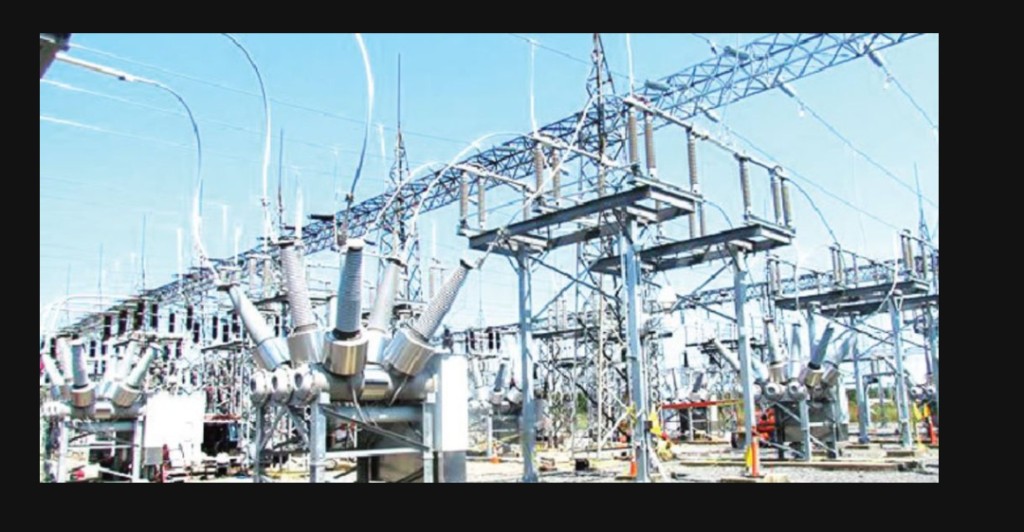News
Discos make N1trillion in 12 months despite incessant power outages
The eleven electricity distribution companies (DisCos) in Nigeria’s electricity supply industry have amassed N1 trillion in revenue in 2023, representing the highest collection recorded in the period in the past ten years.
The figure represents an increase of N234.4bn or 28.2 per cent from the N831bn generated by the power firms over a similar period in 2022.
This latest data was disclosed in the electricity report released by the National Bureau of Statistics on Monday.

The latest data came despite the sporadic power grid collapses recorded during the year.
Nigeria’s national power grid collapsed 46 times from 2017 to 2023, a report by the International Energy Agency said in a report.
According to the report, Nigerians endured more nationwide blackouts in 2023, especially on September 14 when the grid collapsed due to a fire on a major transmission line.
Despite the challenges, the distribution companies have continued to smile at the bank, allocating outrageous billing to customers.
An analysis of the revenue data showed that the Ikeja Electricity Distribution Company got the highest revenue of N218.6bn, up by 31.7 per cent or N52.7bn from N165.9bn recorded in 2022. It was followed closely by the Eko Distribution Company which got a revenue increase of N52.8bn or 42.3 per cent from N124.8bn in 2022.
Third on the list is the Abuja Electricity Distribution Company, with a revenue generation of N167.4bn from N125.7bn recorded in 2022.
Similarly, Ibadan Electricity Distribution Company got a revenue of N111.3bn, Enugu Electricity Distribution Company got a revenue of N82.5bn, Yola Electricity Distribution Company (N22.3bn), and Benin Electricity Distribution Company (N84.6bn), and Kaduna Electricity Distribution Company (N32.4bn).
Also, Jos Electricity Distribution Company increased its revenue to N38.9bn, Kano Electricity Distribution Company (N55.2bn) and Port-Harcourt Electricity Distribution Company (N74.7bn).
Findings also showed that the increased efficiency in revenue collection might not be unconnected to rise in the overbilling of customers especially those on estimated billing system.
Also, it was observed that Discos were able to capture more customers under estimated billings system.
A further analysis stated that the number of metered numbers increased by 9.38 per cent or 480,833 while the number of customers under estimated billings reduced slightly by 1.73 per cent to 5.8m.
“Similarly, metered customers stood at 5.61 million in Q4 2023, indicating a decrease in the growth rate of 1.32 per cent from 5.68 million recorded in the preceding quarter. On a year-on-year basis, this grew by 9.38 per cent from the figure reported in Q4 2022 which was 5.13 million,” the report read.
Recently, the Nigerian Electricity Regulatory Commission, declared that it would deduct N10,505,286,072 from the annual allowed revenues of the 11 power distribution companies during the next tariff review as part of sanctions over their non-compliance with the capping of estimated bills for unmetered customers.
It stressed that the billing of unmetered customers in their various franchise areas for 2023 revealed non-compliance with the monthly energy caps issued by the commission.
The commission explained that the Discos would pay about 10 per cent of the amount they over-billed their customers between January and September 2023.
The regulator also ordered the Discos to refund the cheated customers in full and to ensure compliance in the future, stressing that to deter future occurrence, a 10 per cent fine had been imposed on the utilities.
Since the start of this year, Nigerians have grappled with intermittent power supply, which has adversely impacted businesses and households, prompting numerous individuals and firms to seek alternative sources of energy.
The poor power supply situation was worsened by the fuel subsidy removal of June 2023, with the jump of the average pump price of petrol from N238.11 per litre to over N600 per litre.
This demand for power has been exacerbated by a succession of heat waves, amplifying the environmental and health-related challenges.
Last week, authorities in public and private hospitals lamented the poor power supply situation amid the high cost of diesel in the country, noting that the poor power supply was affecting healthcare delivery.
On February 2, the Minister of Power, Adebayo Adelabu in a post on X formerly Twitter attributed the main cause of poor power supply in the country to the low supply of gas to generating companies.
He said the poor supply had impacted the quantum of bulk power available on the transmission grid for onward transmission to the distribution load centres nationwide.
“I had crucial discussions with power Generating companies and Distribution companies to address the ongoing issue of blackouts in parts of our country. After investigations, it’s clear that the main cause of poor power supply is the low supply of gas to GenCos,” Mr Adelabu said.
To stem the tide, the Federal Government had threatened to revoke the licences of power Distribution Companies over persistent poor power supply across the country, but the situation has not changed much.
The situation is partially attributed to the over $1bn indebtedness to gas producers who provide the gas required for running thermal gas-fired power plants amid the collapse of the national grid.
-

 Celebrity Gossip & Gist2 days ago
Celebrity Gossip & Gist2 days ago“When you talk finish, you hug transformer” – Yul Edochie tells Judy Austin’s ex-husband over his allegation
-

 Health2 days ago
Health2 days ago‘Stunning’ – Experts react to new twice-yearly injection that offers 100% protection against HIV/AIDS
-

 News2 days ago
News2 days ago“9ja to the Universe” – Oyinbo people raise eyebrows as they dance to viral ‘Gwo gwo gwo ngwo’ challenge (Video)
-

 News1 day ago
News1 day agoTinubu meets APC governors as nationwide protest against hardship looms (Video)








